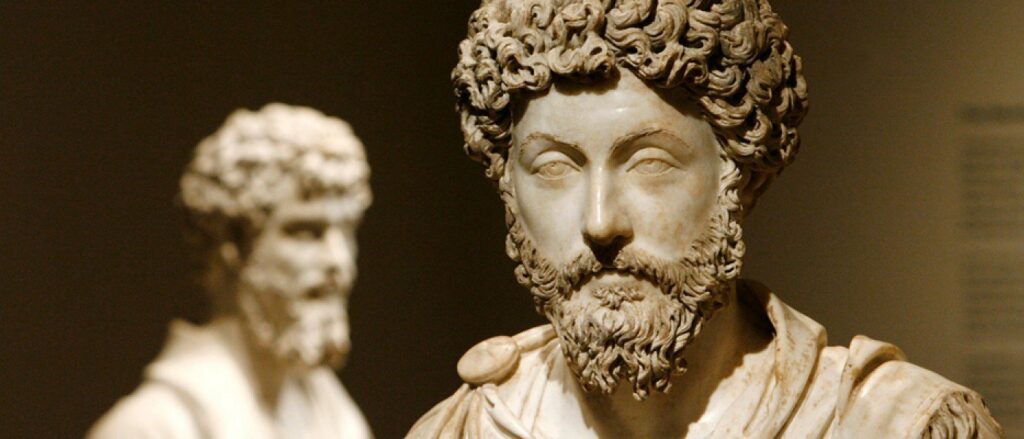Take this Stoic Personality test to find out your personality. We update the quiz regularly and it’s the most accurate among the other quizzes.
Stoicism was one of the Hellenistic period’s new intellectual movements. The name comes from the porch (stoa poikilê) of Athens’ Agora, which was covered with mural paintings and where the school’s lectures were given. Unlike the word ‘epicurean,’ the connotation of the English adjective ‘stoic’ is not completely deceptive in terms of its philosophical antecedents.
The Stoics did believe that feelings such as fear or envy (or strong sexual attachments or passionate love of anything) were or came from incorrect judgments and that the sage – a person who had gained moral and intellectual perfection – would not experience them. Seneca and Epictetus, later Stoics of Roman Imperial times, emphasize the beliefs (already important to the early Stoics’ teachings) that the sage is completely immune to misfortune and that virtue is sufficient for happiness.
The private journals of one of Rome’s greatest emperors, the personal letters of one of Rome’s best playwrights and smartest power brokers, and the lectures of a former slave and exile who became an influential teacher. Against all odds, these remarkable documents have survived for almost two millennia. They contain some of the greatest wisdom in human history, and they form the foundation of what is known as Stoicism—an ancient philosophy that was once one of the most popular civic disciplines in the West, practiced by the rich and the poor, the powerful and the struggling alike in the pursuit of the Good Life.
Stoic Personality test
If you’ve read Cormac McCarthy’s dark and beautiful novel All the Pretty Horses, you’ll remember Emilio Perez’s essential question to John Grady, one that gets to the heart of life and what we all need to do to live a life worth living. Also, you must try to play this Stoic personality test.
“The world wants to know if you’re brave. If you’re daring?”
The Stoics may have put it differently. Seneca would declare that he pitied individuals who had never suffered sorrow. “You have gone through life without an opponent,” he added, “and no one, not even you, knows what you are capable of.”
The world wants to know what category you belong in, which is why it will periodically throw you into difficult situations. Consider these not as annoyances or as tragedies, but as opportunities, as questions to be answered. Do I have guts? Is it true that I am brave? Is this a problem I’m going to address or one I’m going to avoid? Will I be able to stand or will I be rolled over?
Allow your acts to leave a mark on the record—and remind you why courage is the most important thing.
About the quiz
Stoicism is either unknown or misunderstood by all but the most ardent seekers of wisdom. This dynamic, action-oriented, paradigm-shifting manner of life has become shorthand for “emotionlessness” for the typical individual. Given that the very idea of philosophy makes most people nervous or bored, “Stoic philosophy” appears to be the last thing anyone would want to learn about, let alone urgently require in their daily lives.
It’s difficult to think of a word that has been treated more unfairly by the English language than “Stoic.” Stoicism, in its proper position, is a tool for self-mastery, endurance, and wisdom: something one utilizes to live a wonderful life, rather than some arcane subject of academic investigation. Many of history’s great minds, including George Washington, Walt Whitman, Frederick the Great, Eugène Delacroix, Adam Smith, Immanuel Kant, Thomas Jefferson, Matthew Arnold, Ambrose Bierce, Theodore Roosevelt, William Alexander Percy, and Ralph Waldo Emerson, not only recognized Stoicism for what it is but sought it out. The Stoics were read, studied, cited, or admired by all. The ancient Stoics were no slouches either. The names you’ll see in our daily email meditations on this site—Marcus Aurelius, Epictetus, and Seneca—belong to a Roman emperor, a former slave who triumphed to become a prominent lecturer and friend of the emperor Hadrian, and a famous playwright and political counselor, respectively.
What have all of these and countless more brilliant men and women discovered in Stoicism that others have overlooked? A lot of it. First and foremost, it provides much-needed strength, insight, and stamina for all of life’s problems.
For more personality quizzes check this: What Nail Color Should I Wear Quiz.




